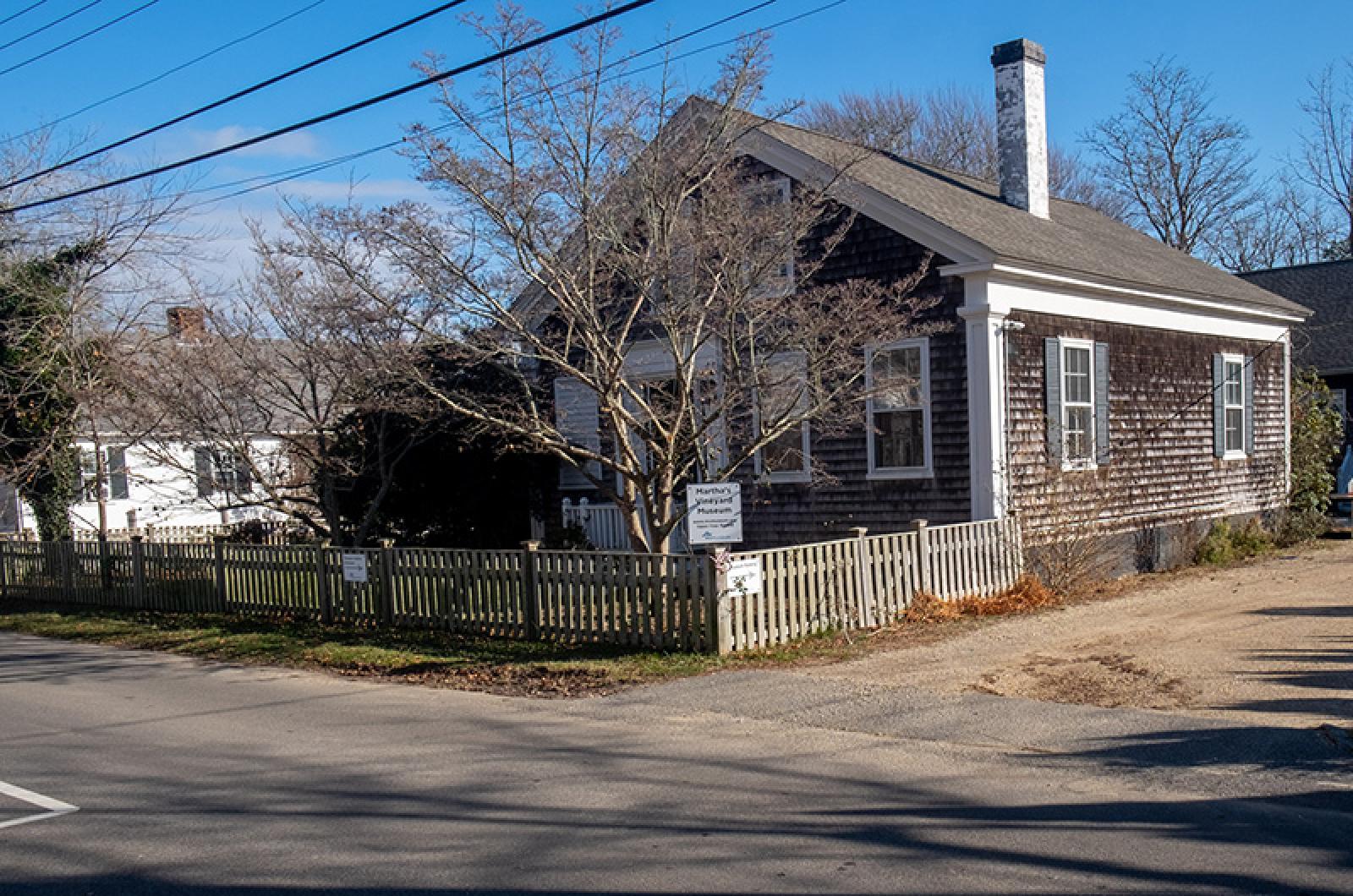After nearly a century of calling Edgartown home, the Martha’s Vineyard Museum has closed on the sale of its former property on School street for $4 million.
The museum sold two downtown parcels to two separate buyers on Dec. 3. The sale price for each was $2 million.
The sale comes as the museum completes the final steps in its seven-year, $31 million project to convert the former marine hospital in Vineyard Haven into its permanent home.
The buyers are Stephen P. and Sheila M. Schlageter, and Paul B. and Chari B Polley. The Schlageters, whose home address is listed in land records as Summit, N.J., bought the portion of property that contains the museum’s former storage and office building. The Polleys, whose home address is listed as Sarasota, Fla., bought the portion that contains the museum’s former gift shop and main galleries.
The two parcels, both conforming lots under 10,000-square foot downtown minimum zoning rules, were created from the museum’s campus fronting School and Cooke streets during a new division of the property that took place in September. The division involved redrawing lot lines to create three lots from two. The third lot includes the historic Thomas Cooke house and will remain under museum ownership. Future plans call for turning the Cooke house into a public garden.
The broker for both sales was Gerret Conover of LandVest. Museum operations manager Katy Fuller said Monday that a purchase and sale agreement with each buyer was signed more than a year ago.
“It wasn’t a surprise to us,” Ms. Fuller said. “We have always planned to sell two-thirds of Edgartown and that will help finance Vineyard Haven.”
Mr. Conover confirmed that the sale had been long-planned. “As the museum realized, they didn’t have enough room. They were trying to decide what to sell, what to keep,” he said. “A year and a half ago or so they decided they were at the very least going to sell part of 59 School street. So we brought them a buyer, and it was a friendly deal in that they didn’t have to move out right away and a fair market price. So it was a nice situation for them. That was one transaction for $2 million. Then further down the road when the board decided the final piece of what was going to be selling, they let another lot go.” Mr. Conover concluded: “Both buyers are good people, both have existing Island ties, both are excited to go through the process of designing, permitting and building new properties over the next year or so.”
The Edgartown property was formally vacated on Dec. 3, Ms. Fuller said, and except for the Cooke House, the museum has now otherwise divested itself of its former Edgartown campus.
“It was bittersweet. We have a long history in Edgartown,” Ms. Fuller said.
Meanwhile, she said a soft opening is set for Jan. 17 at the refurbished marine hospital in Vineyard Haven. Exhibits on the history of music on the Vineyard and a celebration of the 100th anniversary of the Migratory Bird Act will highlight the new galleries. Until then, employees are working nomadically, since the new space has not been issued a certificate of occupancy.
“We joke that we’re homeless,” Ms. Fuller said.
She estimated the museum building will be finished by the end of the week.
Formerly the Dukes County Historical Society, the museum opened its doors in Edgartown in 1922. Since then, it grew from a tiny meetinghouse for historical society members to one of the Island’s most visible nonprofits, telling the stories of Wampanoags, Gosnolds, whalers, plane crashes, Kennedys, lighthouses, and amassing a large collection of Island artifacts along the way. By 2010, it was decided that the museum had outgrown its space and the time had come for a new home, prompting the project to buy and convert the former hospital that sits on a hilltop overlooking the Vineyard Haven harbor.
Once the dust settles, the museum has blueprints for redoing the gardens around the Cooke House in Edgartown property. The $1.5 million plan includes restoring the roof and interior of the house, which is the oldest freestanding structure on its original site in Edgartown, and creating a colonial garden that is open to the public. The house is permanently protected through historic conservation restrictions.
Plans call for a shrub buffer between the Cooke House property and the two parcels that changed hands.







Comments (4)
Comments
Comment policy »